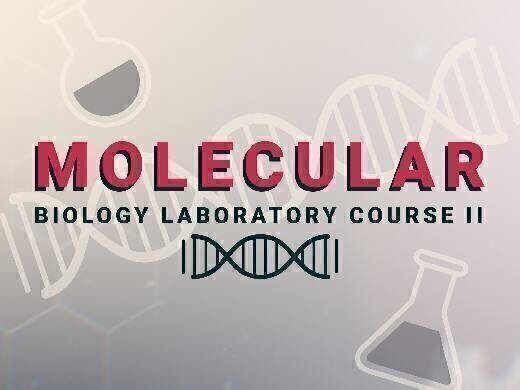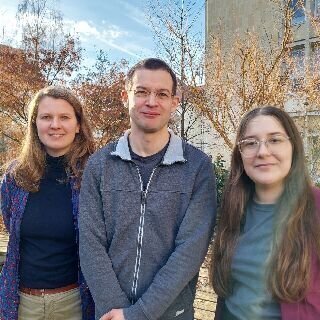


MOL.601_1UF Molecular Biology Laboratory Course II
Graz University of Technology
Jelena Spasic, Daniel Kracher, Jasmin Zuson
A propos de
Informations générales sur le cours
This iMooX course is a mandatory preparatory course for the Molecular Biology Laboratory course II (MOL.601) in the NAWI bachelor's degree program in Molecular Biology, offered by Graz University of Technology.
The course offers an insight into molecular biology and biochemical techniques commonly employed in research. In 5 units, participants will gain solid theoretical knowledge of gene cloning methods, with a focus on the widely used “Gibson Assembly” technique and Bacteriophage-based gene transfer. Participants will also get insight into the principles of recombinant protein expression and RNA and protein analysis. Participants will gain both theoretical knowledge and insight into practical applications, enabling them to design and interpret experiments by the end of the course.
Contenu
Contenu du cours
Topic 1: Gene cloning using Gibson Assembly including primer design (units 1 and 2)
Topic 2: Analysis of gene expression (units 3 and 4)
Topic 3: Genetic engineering using bacteriophages (unit 5)
Objectifs du cours
After completion of the course, participants will be able to
1. Understand and explain the basic principles behind the “Gibson Assembly” method used for gene cloning. They will be able to design the primers and conceptualize an experimental workflow.
2. Develop skills to identify and optimize critical steps in the recombinant expression of proteins
3. Learn how gene and protein expression can be followed and quantified on the RNA and protein level.
4. Acquire knowledge about the utilization of bacteriophages as an alternative tool for genetic engineering
5. Design standard molecular biology experiments and interpret results
Connaissances antérieures
Basic knowledge of molecular biology and biochemistry is expected. Advanced molecular biology knowledge at the bachelor's level is recommended.
Procédure du cours
The MOOC is divided into 5 units, which will be published simultaneously. Each unit contains several lecture videos, accompanying transcripts, and occasionally additional bonus materials. Every educational unit contains a quiz that must be successfully completed to obtain the certificate.
Certificat
For actively participating in the course you will receive an automatic certificate which includes your name, the course name as well as the completed lessons. We want to point out that this certificate merely confirms that you answered at least 75% of the self-assessment questions correctly.Licence
This work is licensed under CC BY 4.0Formateur/formatrice

Jelena Spasic, Daniel Kracher, Jasmin Zuson
Jelena Spasic is passionate about doing biocatalysis using different microbial hosts. With expertise in working with E. coli, Cyanobacteria and Streptomyces in whole-cell biocatalysis, she has published 9 peer-reviewed papers exploring innovative microbial applications in molecular biotechnology. She obtained her PhD in a double degree program between University of Porto and Graz University of Technology, before moving to Graz, where she is currently a university assistant. As of right now, she is exploring next-generation strategies for cell and protein engineering to improve biocatalysis.
Daniel Kracher is passionate about enzymes. He has co-authored more than 40 papers exploring the mechanisms and applications of these fascinating biocatalysts. He obtained his PhD in Biochemistry at the BOKU University in Vienna, before moving to Manchester (UK) to deepen his expertise in protein dynamics. He joined TU Graz in 2020 as a university assistant and leads a junior research group focused on redox enzymes and protein engineering.Jasmin Zuson is a young researcher and passionate teacher. After completing her master's studies at TU Graz, she is currently pursuing a PhD, utilizing advanced protein engineering techniques and next generation sequencings to optimize and engineer enzymes.
Se connecter et s’inscrire Actuellement: 144 Participants
Gratuit pour tous € 0.00
Partenaires

Graz University of Technology
Graz